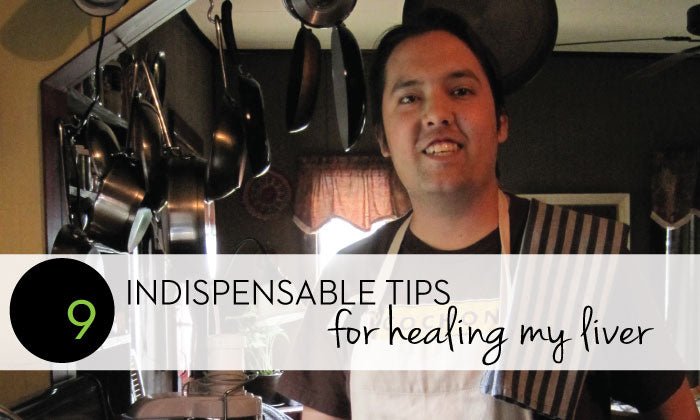- Sodium: I kept my daily intake of sodium to 2 mg per day. One thing to look out for is when a label reads ‘low sodium’ it is almost always replaced by sugar, which should also be limited.
- Processed Foods: I removed processed sugars and foods from my diet. This means ‘instant’ anything, and everything that comes in a box or can should stay there! Beware of ‘sugar free’ labels are often packed with super-synthetic sweeteners that are just as bad for you.
- Organic: organic foods are always best and should always be chosen over non-organic WHENEVER possible!
- Distilled Water: drinking distilled water, especially in the first few weeks of recovery from something like hospitalization, is essential! Tap water is your enemy as much as eating a non-organic apple without washing it.
- Protein: I limited my daily protein intake to 50g. Vegetable proteins are the easiest for me digest so I opt for those whenever possible. Soy, tempeh, nuts such as walnuts, almonds and pecans are great sources of protein. Eggs, fish (though not shellfish) and poultry are next easiest for me to digest, followed by pork, then red meats (such as beef and lamb). I avoid try to red meats whenever possible and remove skins from my poultry.
- Fruits & Veggies: I have also learned to love cruciferous vegetables (broccoli, asparagus, cauliflower) and leafy greens of all sorts (kale, chard, radicchio, bok choy). I look for high fiber and nutrient dense vegetables like beets, carrots, brussel sprouts and artichokes. All fruits for me are great, but skin-on apples (the pectin aids in digestion) and dark berries (anthocyanins) are my favorites.
- Herbs & Spices: Most any herb and spice is welcome but the best for me are turmeric, cinnamon, basil, cayenne and coriander.
- Whole grains: whole grains and brown rice are great sources of carbohydrates, so depending on what your recommended carb load is per your dietician, I go crazy here as well. For pastas, I look to whole wheat and quinoa-based selections and always check the ingredients to make sure those grains are the primary ingredient.
- Dairy: Dairy products should be considered protein sources, but ask your dietitian or doctor if they are appropriate, as they aren’t always the easiest proteins for people to digest.
A Cirrhosis Survivor’s Guide: 9 Indispensable Diet Tips for Healing My Liver

After struggling with alcoholism for many years, I was diagnosed with advanced-stage Cirrhosis at 30 years old and almost died (read my story). When I finally got out of my coma and left the hospital, I knew I had to drastically change my diet and lifestyle. I worked with my doctors, who suggested I create a modified version of a Renal Diet in order to restore the health of my liver. This new diet has been essential to my healing liver and my body!
My new liver restoring diet emphasizes limiting fluids, eating a low-protein diet, limiting salt, potassium, phosphorous, and other electrolytes, and getting enough calories if you are losing weight. Here are a few tips from my diet that I have found indispensable:
9 Indispensable Diet Tips:
























